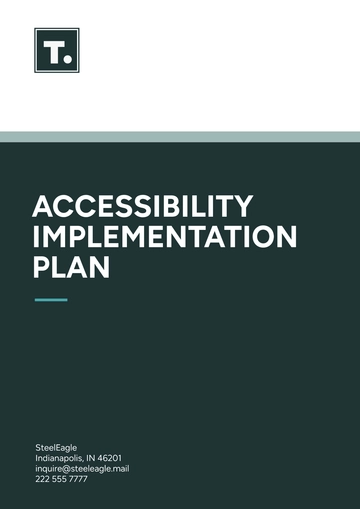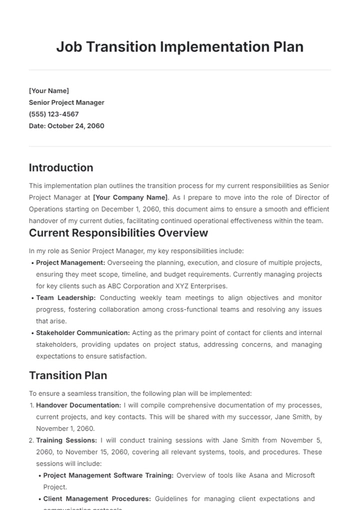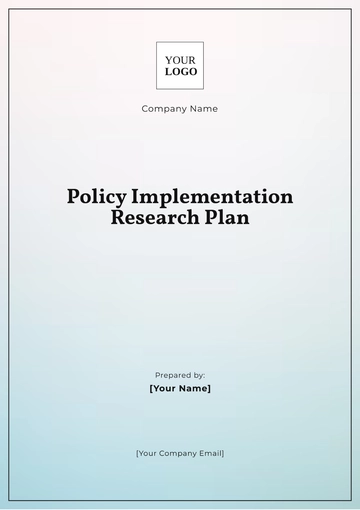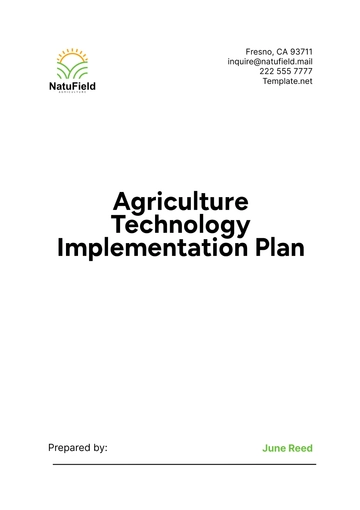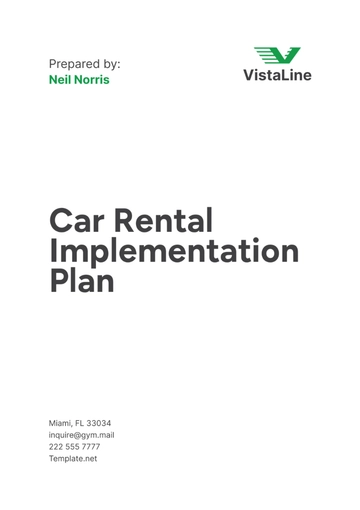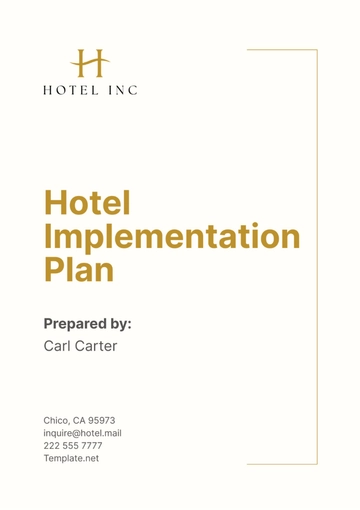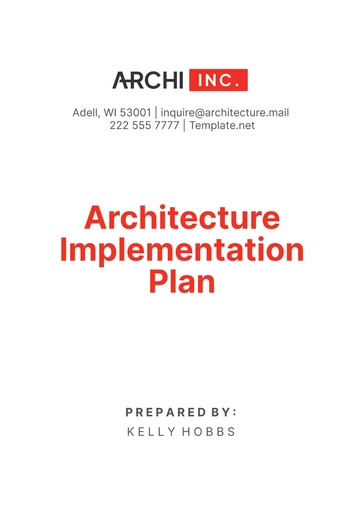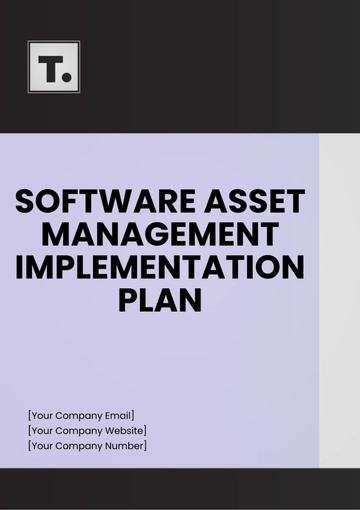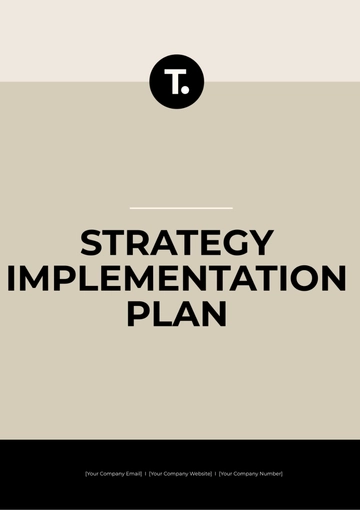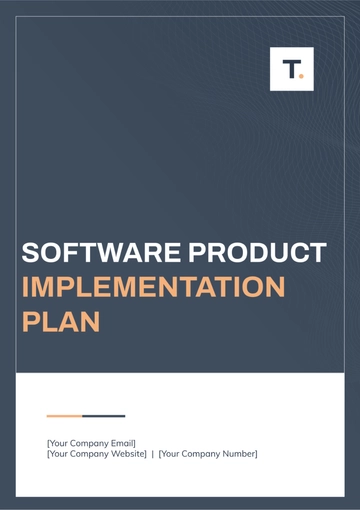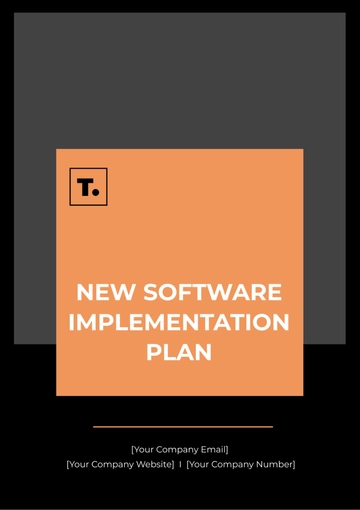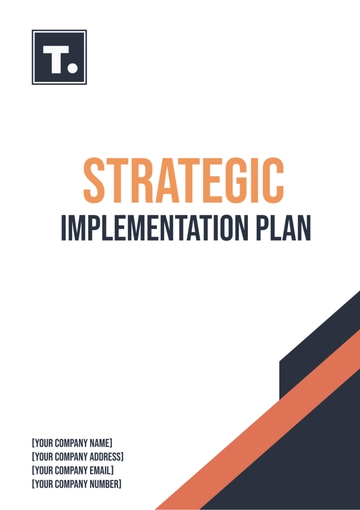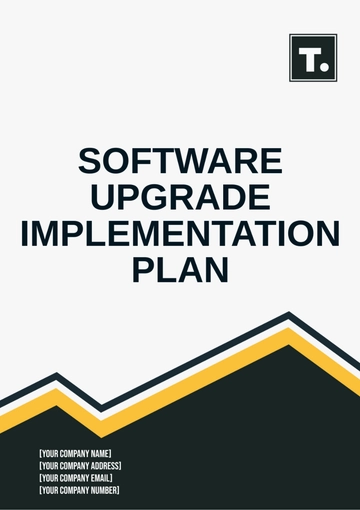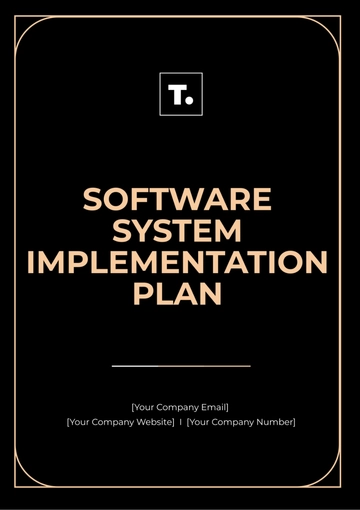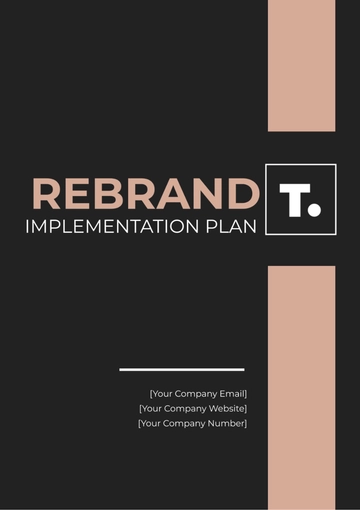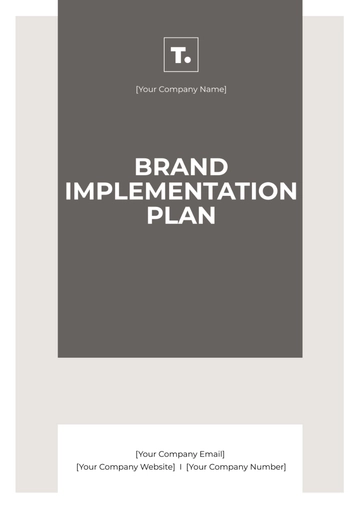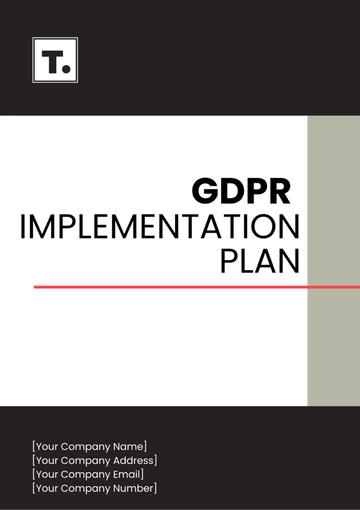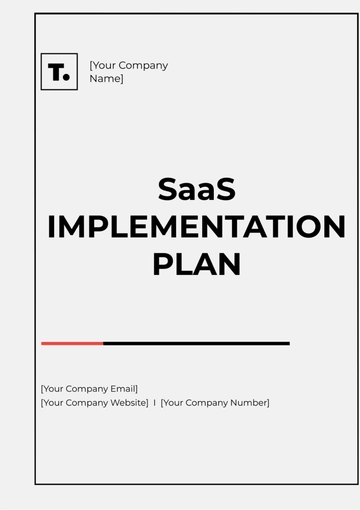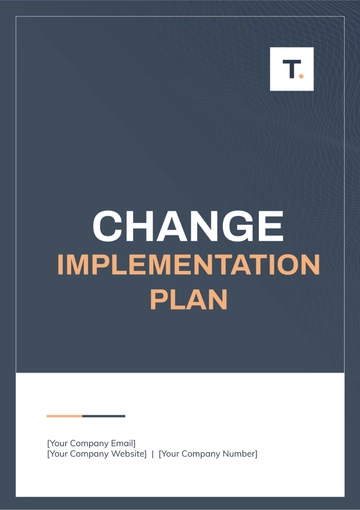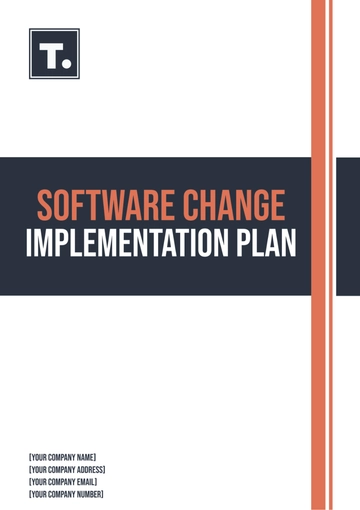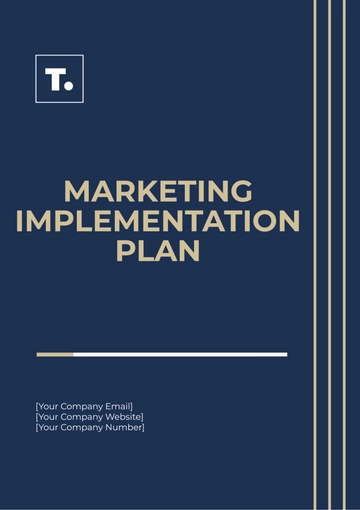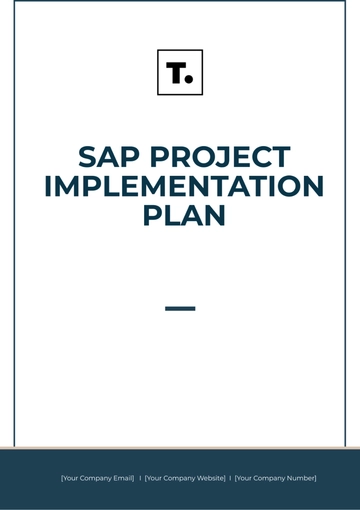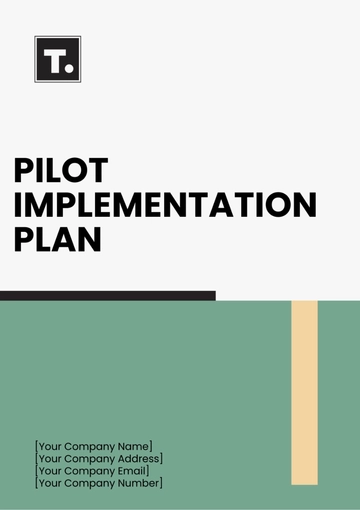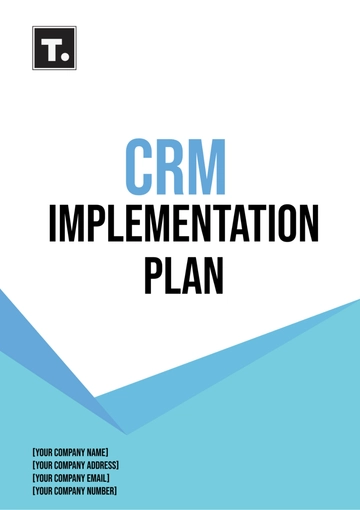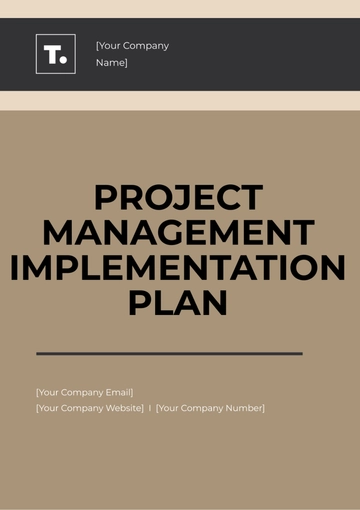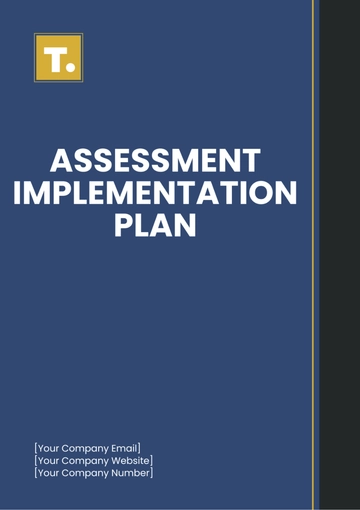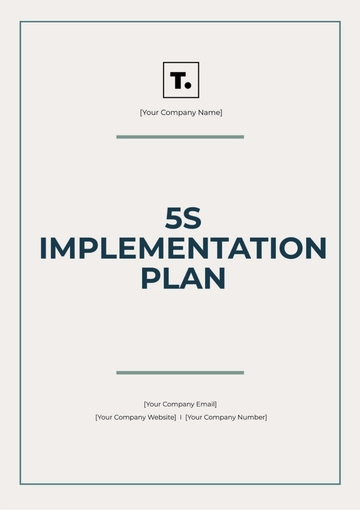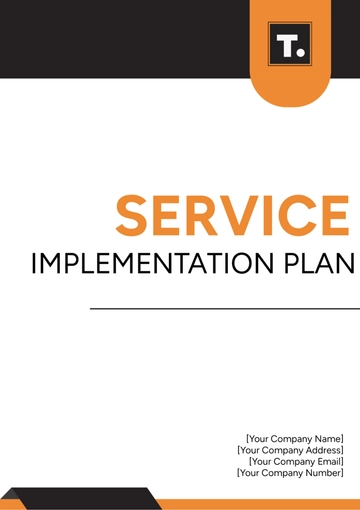Free Travel Agency Implementation Plan
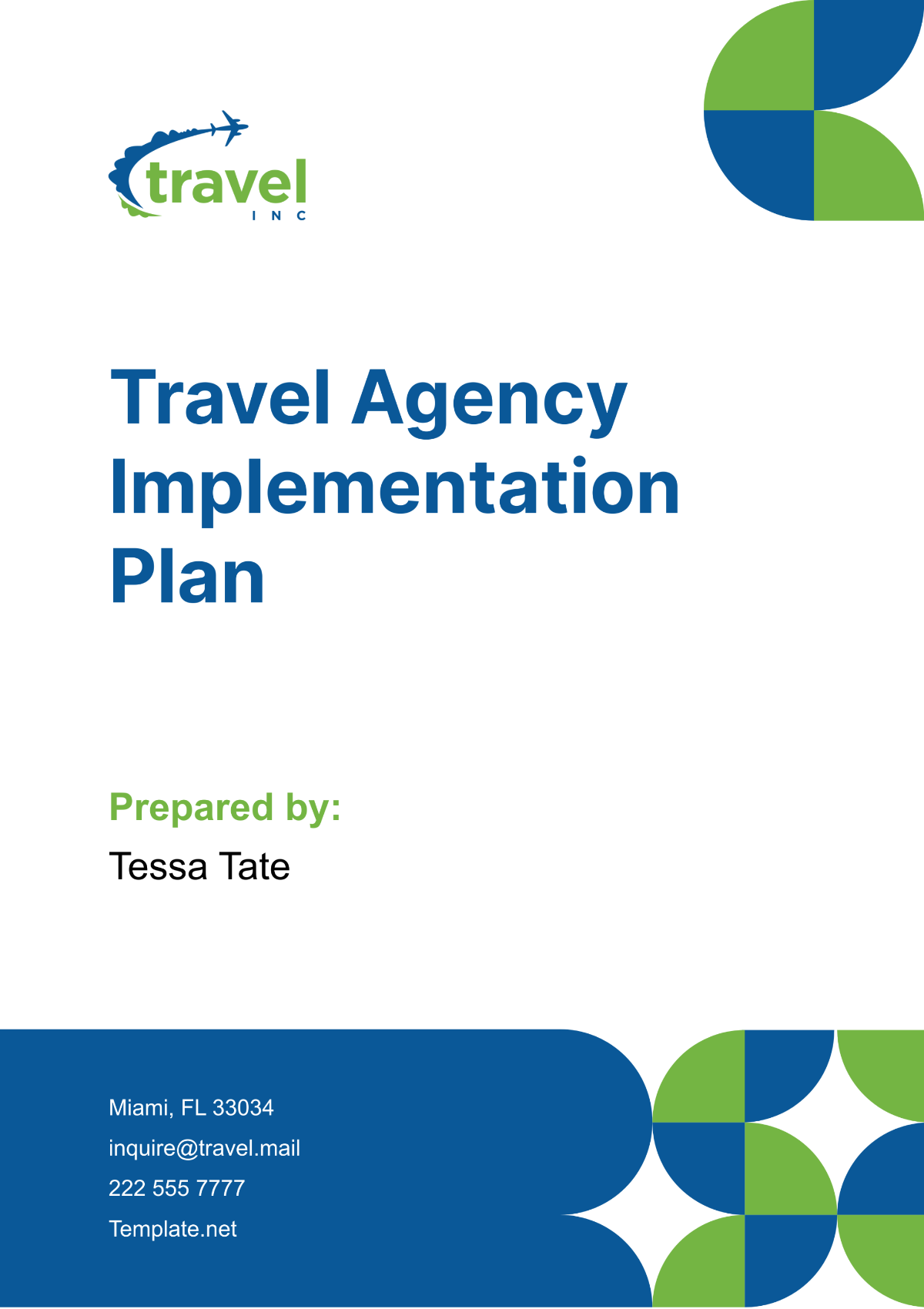
I. Executive Summary
As part of our commitment to enhancing service delivery and expanding market reach, we are embarking on several strategic initiatives designed to elevate our operational efficiency and customer satisfaction. This Implementation Plan outlines the steps we will take to ensure these initiatives are successfully realized, thereby aligning with our long-term strategic goals. Key initiatives to be implemented include:
Integration of a new state-of-the-art booking system
Expansion into three new international markets
Launch of a series of eco-friendly travel packages
Implementation of a comprehensive digital marketing strategy
II. Project Scope and Objectives
This project encompasses a series of coordinated actions aimed at improving our service offerings and expanding our global presence. The overarching goal is to streamline our operational processes and enhance our product portfolio to better meet the evolving needs of our clients. Specific objectives include:
Successfully deploy the new booking system within 6 months
Enter and establish operations in new international markets within the next year
Develop and market eco-friendly travel packages by the end of Q2
Increase online customer engagement by 40% through our digital marketing efforts
III. Project Management Structure
To ensure effective management and execution of this plan, we have established a project management structure that assigns clear roles and responsibilities to our team members. Below is a table outlining this structure:
Role | Responsibilities |
|---|---|
Project Manager | Overall project oversight, resource allocation |
IT Systems Manager | Implementation and testing of the booking system |
Market Expansion Lead | Research and operational setup in new markets |
Product Manager | Development and rollout of eco-friendly packages |
Digital Marketing Manager | Lead the digital marketing strategy, track engagement metrics |
IV. Implementation Phases
The project is structured into distinct phases, each designed to address specific components of the overall strategy. This phased approach ensures a focused and manageable execution, with clear objectives and deadlines for each stage. Below is a table outlining each phase, the key activities involved, and their respective timelines:
Phase | Activity | Timeline |
|---|---|---|
Planning | Finalize project plan and gather resources | |
System Implementation | Deploy and test new booking system | |
Market Expansion | Set up operations in new markets | |
Product Launch | Develop and launch eco-friendly travel packages | |
Marketing Rollout | Implement digital marketing campaigns | |
Evaluation | Monitor results and adjust strategies |
V. Resource Allocation
A. Human Resources
The successful implementation of our plan requires a dedicated team with specific skills. Below is a table detailing the human resources needed for each phase of the project:
Phase | Human Resources Required |
|---|---|
Planning | Project Manager, Financial Analyst |
System Implementation | IT Systems Manager, Software Engineers |
Market Expansion | Market Research Team, Logistics Manager |
Product Launch | Product Manager, Marketing Specialists |
Marketing Rollout | Digital Marketing Manager, Content Creators |
Evaluation | Data Analysts, Project Manager |
B. Financial Resources
Funding is crucial for the successful execution of the project. Below is a table providing a breakdown of the budget allocation for each key area:
C. Technology and Tools
Several technologies and tools are essential for implementing our initiatives. These include:
New Booking System Software
Digital Marketing Tools
Product Development Tools
Customer Relationship Management (CRM) System
Project Management Software
VI. Risk Management
Effective risk management is critical to ensuring the success of our implementation plan. We have identified potential risks that could impact our project, evaluated their likelihood and potential impact, and developed strategies to mitigate these risks. Below is a table detailing these risks:
Risk | Impact | Mitigation Strategy |
|---|---|---|
Technical Failures | High | Implement robust testing |
Market Entry Barriers | Medium | Conduct thorough market research |
Budget Overruns | High | Regular budget reviews |
Staffing Shortages | Medium | Develop a talent acquisition strategy |
Mitigation strategies are designed to preemptively address risks, ensuring that potential problems are managed proactively. Regular risk assessments will be conducted throughout the project lifecycle to adjust strategies as needed and respond to new risks.
VII. Communication Plan
Effective communication is essential to the success of this implementation plan, both internally among team members and externally with stakeholders. Internally, we will use regular project updates, meetings, and a dedicated project management tool to ensure all team members are informed and engaged. Externally, we will communicate with stakeholders through updates via email newsletters, stakeholder meetings, and through our website to ensure transparency and maintain strong relationships. This dual approach ensures that all parties are consistently informed about project progress, changes, and outcomes.
VIII. Training and Support
Training and support are pivotal for ensuring that our team is well-prepared and equipped to handle new systems, products, and market challenges. Below is a table outlining our planned training programs, their frequency, and duration:
Program | Frequency | Duration |
|---|---|---|
Booking System Training | One-time | 2 weeks |
Market Expansion Training | One-time | 1 week |
Eco-Friendly Product Training | One-time | 1 week |
Digital Marketing Tools | Bi-annual | 3 days |
Customer Service Enhancement | Annual | 2 days |
These training sessions are designed to equip our employees with the necessary skills and knowledge to successfully implement and manage new systems and initiatives. Additionally, ongoing support will be available through a dedicated help desk and regular refresher courses to address any emerging challenges or updates to the system.
IX. Monitoring and Evaluation
To ensure that our implementation plan achieves its objectives, we have established a set of metrics to monitor and evaluate our progress. This systematic approach allows us to measure the effectiveness of each initiative and make informed decisions. Below is a table outlining these key performance metrics and their target values:
Metric | Target Value |
|---|---|
System Uptime | 99.5% |
Market Penetration Rate | 25% in new markets |
Customer Satisfaction Index | 85% |
Return on Marketing Investment | 120% |
Employee Training Completion Rate | 100% |
Evaluations will occur quarterly and at the end of each project phase. We will use a combination of tools, including analytics software, surveys, and direct feedback to collect data. The Project Management Office (PMO) will review this data, compare it against our targets, and provide comprehensive reports. These evaluations will help us identify areas needing adjustment and confirm when objectives have been successfully met.
X. Approval and Launch
The final approval for the implementation plan will be sought during a dedicated session with the executive board scheduled for the end of the current quarter. Upon approval, we will officially launch the plan with an all-staff briefing to ensure everyone understands their roles and the expected outcomes. This will be followed by the deployment of the new booking system and the initiation of the market expansion and product launch phases. The kickoff will be supported by a company-wide communication outlining the timeline and key actions for all employees.
XI. Conclusion
This Implementation Plan sets forth a clear and structured approach to achieving strategic growth and operational efficiency. By meticulously planning each phase, allocating necessary resources, and establishing robust monitoring and evaluation practices, we are poised to not only meet but exceed our objectives. Our commitment to this plan is integral to our future success, and we look forward to the continued dedication and teamwork of all involved as we move forward.
- 100% Customizable, free editor
- Access 1 Million+ Templates, photo’s & graphics
- Download or share as a template
- Click and replace photos, graphics, text, backgrounds
- Resize, crop, AI write & more
- Access advanced editor
The Travel Agency Implementation Plan Template from Template.net is a critical tool for seamlessly introducing new services or projects within your travel agency. This template is fully editable and customizable in our AI Editor tool, allowing you to precisely tailor each step of your implementation process. It provides a detailed roadmap for executing strategies effectively, ensuring that every new initiative is launched smoothly and achieves its intended outcomes.
You may also like
- Finance Plan
- Construction Plan
- Sales Plan
- Development Plan
- Career Plan
- Budget Plan
- HR Plan
- Education Plan
- Transition Plan
- Work Plan
- Training Plan
- Communication Plan
- Operation Plan
- Health And Safety Plan
- Strategy Plan
- Professional Development Plan
- Advertising Plan
- Risk Management Plan
- Restaurant Plan
- School Plan
- Nursing Home Patient Care Plan
- Nursing Care Plan
- Plan Event
- Startup Plan
- Social Media Plan
- Staffing Plan
- Annual Plan
- Content Plan
- Payment Plan
- Implementation Plan
- Hotel Plan
- Workout Plan
- Accounting Plan
- Campaign Plan
- Essay Plan
- 30 60 90 Day Plan
- Research Plan
- Recruitment Plan
- 90 Day Plan
- Quarterly Plan
- Emergency Plan
- 5 Year Plan
- Gym Plan
- Personal Plan
- IT and Software Plan
- Treatment Plan
- Real Estate Plan
- Law Firm Plan
- Healthcare Plan
- Improvement Plan
- Media Plan
- 5 Year Business Plan
- Learning Plan
- Marketing Campaign Plan
- Travel Agency Plan
- Cleaning Services Plan
- Interior Design Plan
- Performance Plan
- PR Plan
- Birth Plan
- Life Plan
- SEO Plan
- Disaster Recovery Plan
- Continuity Plan
- Launch Plan
- Legal Plan
- Behavior Plan
- Performance Improvement Plan
- Salon Plan
- Security Plan
- Security Management Plan
- Employee Development Plan
- Quality Plan
- Service Improvement Plan
- Growth Plan
- Incident Response Plan
- Basketball Plan
- Emergency Action Plan
- Product Launch Plan
- Spa Plan
- Employee Training Plan
- Data Analysis Plan
- Employee Action Plan
- Territory Plan
- Audit Plan
- Classroom Plan
- Activity Plan
- Parenting Plan
- Care Plan
- Project Execution Plan
- Exercise Plan
- Internship Plan
- Software Development Plan
- Continuous Improvement Plan
- Leave Plan
- 90 Day Sales Plan
- Advertising Agency Plan
- Employee Transition Plan
- Smart Action Plan
- Workplace Safety Plan
- Behavior Change Plan
- Contingency Plan
- Continuity of Operations Plan
- Health Plan
- Quality Control Plan
- Self Plan
- Sports Development Plan
- Change Management Plan
- Ecommerce Plan
- Personal Financial Plan
- Process Improvement Plan
- 30-60-90 Day Sales Plan
- Crisis Management Plan
- Engagement Plan
- Execution Plan
- Pandemic Plan
- Quality Assurance Plan
- Service Continuity Plan
- Agile Project Plan
- Fundraising Plan
- Job Transition Plan
- Asset Maintenance Plan
- Maintenance Plan
- Software Test Plan
- Staff Training and Development Plan
- 3 Year Plan
- Brand Activation Plan
- Release Plan
- Resource Plan
- Risk Mitigation Plan
- Teacher Plan
- 30 60 90 Day Plan for New Manager
- Food Safety Plan
- Food Truck Plan
- Hiring Plan
- Quality Management Plan
- Wellness Plan
- Behavior Intervention Plan
- Bonus Plan
- Investment Plan
- Maternity Leave Plan
- Pandemic Response Plan
- Succession Planning
- Coaching Plan
- Configuration Management Plan
- Remote Work Plan
- Self Care Plan
- Teaching Plan
- 100-Day Plan
- HACCP Plan
- Student Plan
- Sustainability Plan
- 30 60 90 Day Plan for Interview
- Access Plan
- Site Specific Safety Plan
